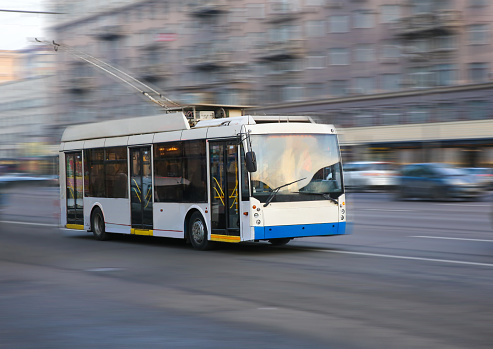
Working to discern patterns of environmental disinformation in an online world
For the past eight years, disinformation has dominated news around elections all over the world. Despite this, it is still a widely misunderstood con...
News

Publish date: May 19, 2016
News
EUR 27.6 million will be dedicated to the two envisaged e-bus test routes, which will commence operation in Brussels by 2018. These will be equipped with different charging infrastructure and systems in order to allow for experience to be gained in the lead up to the envisaged full electrification of Brussels’ bus fleet by 2030.Different size buses will be tested to analyse different scenarios and find a best fit for Brussels.
The Brussels government has also announced plans for the purchase of 235 hybrid buses which will allow the city to take the 117 most polluting buses off its roads. Initially, however, the government had aimed for all 235 of these to operate on electricity.
“A number of cities across Europe are moving to electrify public transport, showing that electric buses are already available and functioning. While testing some routes is well and good, Brussels doesn’t need to re-invent the wheel and could build on other cities’ progress to deliver quicker, more concrete actions to fully and rapidly embrace this inevitable transition” comments Bellona adviser Teodora Serafimova.
In addition to cost savings for municipalities, the deployment of e-buses would bring important improvements in terms of tackling local air pollution and related human health issues. Recent findings by the WHO based on analyses from 3,000 cities, have shown that outdoor air pollution has grown 8% globally in the past years with billions of people around the world now exposed to dangerous high pollution levels.
Oslo transport to be fossil free by 2020
Oslo has committed to providing a fossil-free public transport sector by 2020. This means that all public transport solutions will have to be based on renewable energy for operation and transport. While Norway has already come a long way in boosting electric passenger cars (latest figures show more than 70,000 electric vehicles registered), the Oslo city leadership is now looking to accelerate the uptake of electricity-fueled public transport.
To this end, Siemens and Volvo have produced a joint study looking into the most profitable and most promising technologies in terms of CO2 emissions and air pollution reduction potential for the transport sector. The study has looked into 460 buses operating on a total of 64 different bus routes within the city of Oslo.
The study’s findings are crystal clear: rechargeable hybrid or all-electric (battery-driven) buses are by far the most profitable technology. At the same time, solutions for fast charging at stops will help to enable electrification on eight out of ten routes without making any changes to the routes available. Only minor adjustments will be needed on the other routes.
If Oslo’s bus fleet were to be converted to fully electric, the municipality would save 750 million NOK (or EUR 80 million) over 10 years, compared to today’ diesel buses. And when compared to biofuels, these savings could exceed 600 million (EUR 65 million).

For the past eight years, disinformation has dominated news around elections all over the world. Despite this, it is still a widely misunderstood con...

A ruling by the European Free Trade Association Court that Norway’s continental shelf falls under the European Economic Area Agreement could dramatic...

Bellona held a seminar on countering Russian disinformation in the Arctic at the Arctic Frontiers international conference in Norway

Our December Nuclear Digest, reported by Bellona’s Environmental Transparency Center, is out now. Here’s a quick taste of three nuclear issues arisin...